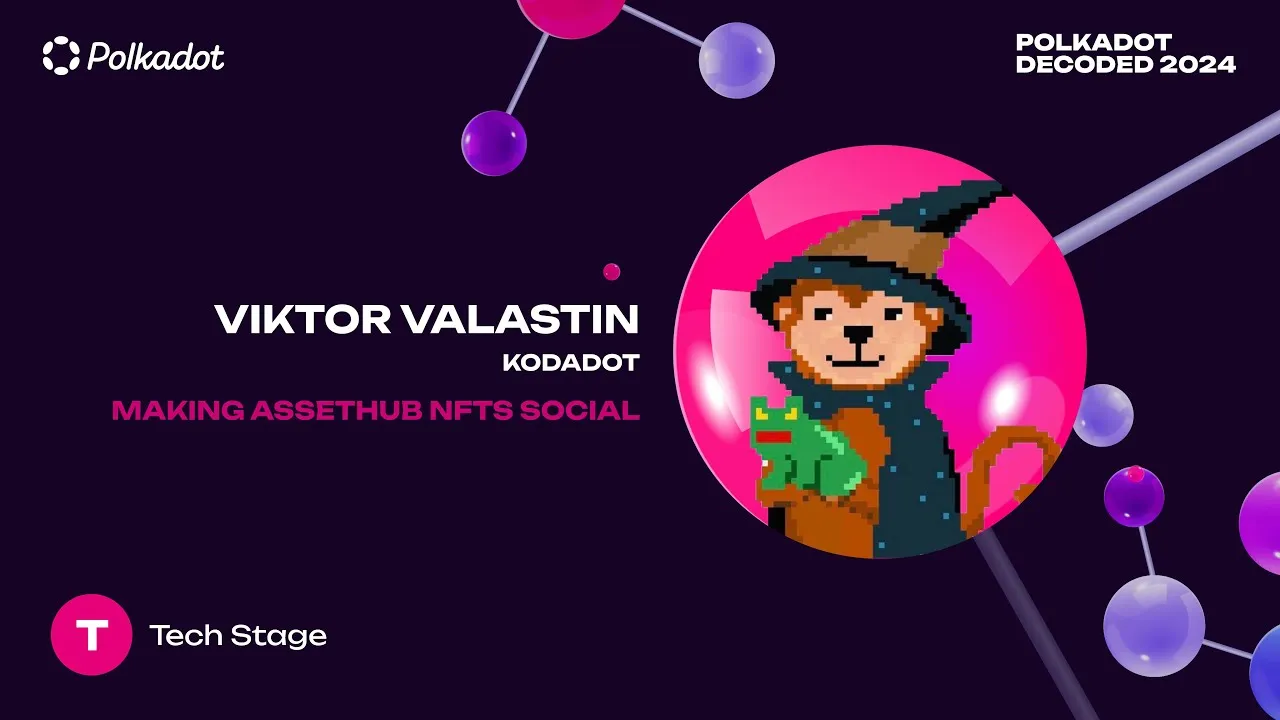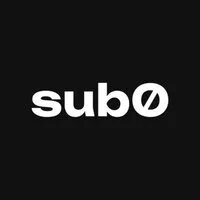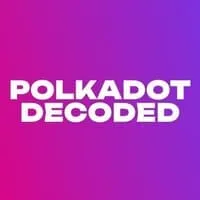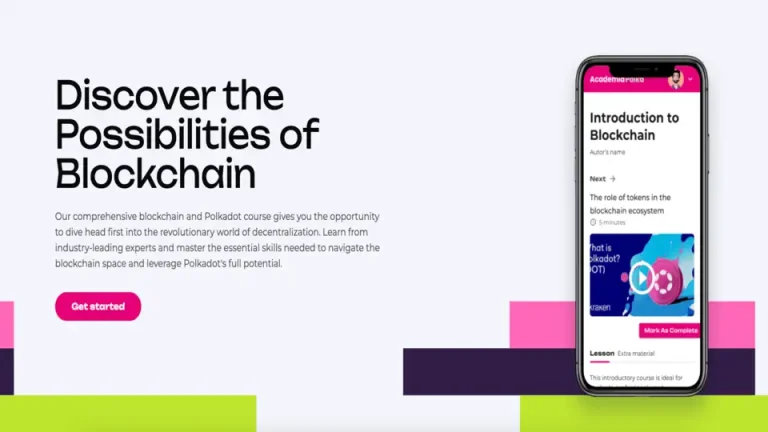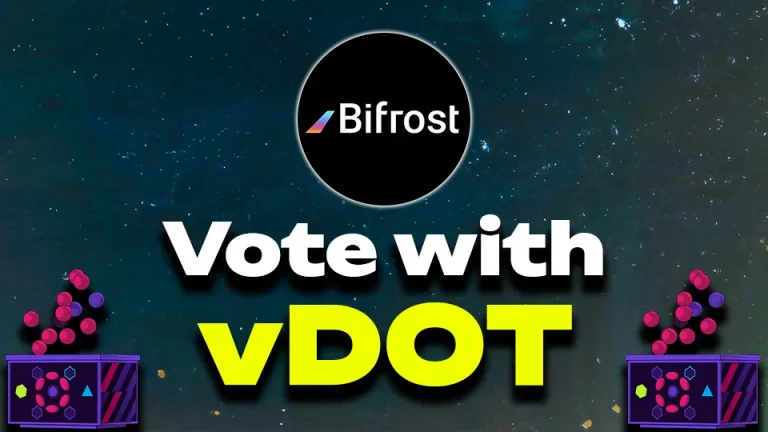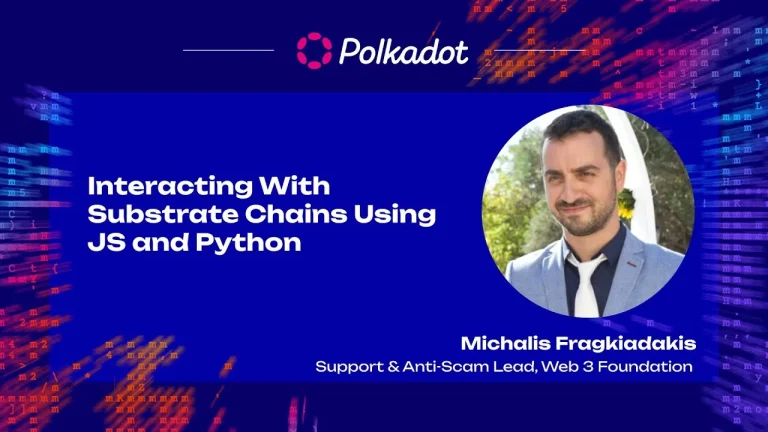In the edition of Polkadot Decoded 2024, Viktor Valastin, co-founder of Koda (Kodadot NFT Marketplace), delved into the transformative potential of making AssetHub NFTs social. This talk provided a deep dive into the innovative mechanisms behind integrating social dynamics with NFTs, aiming to enhance user engagement and interaction within the blockchain ecosystem.
Understanding Koda: A Generative NFT Marketplace
Koda stands as a generative NFT marketplace within the Polkadot and EVM ecosystems. As a technology-agnostic platform, Koda accommodates various technological frameworks, including JavaScript, assembly, and more exotic technologies. With a robust bounty-based model, Koda has successfully attracted over 130 contributors, boasting more than 600 stars and 350+ forks on GitHub.
Exploring the State of NFTs in the Polkadot Ecosystem
Viktor highlighted two primary paths for new developers in the ecosystem:
- Classic Smart Contracts: Utilizing Solidity and existing frameworks, developers can create smart contracts widely used in Ethereum and other ecosystems.
- Native NFTs on AssetHub: Offering on-chain minting and logging without the need for smart contracts, this approach is more efficient and flexible.
AssetHub: The System-Chain Advantage
AssetHub, a system chain with DOT XM NS, supports features like Atomic swaps and multiple NFT standards within one protocol. This integration simplifies the development process, allowing for custom metadata, attributes, and mint settings directly on-chain.
Generative Art: A Unique Approach
Koda’s platform emphasizes generative art, a form where artists code rather than draw, resulting in unique, complex art pieces stored on decentralized networks such as Arweave or IPFS. This method ensures that each piece of art is one-of-a-kind, enhancing its value and appeal.
Bridging Generative Art with Social Networks
Valastin emphasized the importance of community in generative art, introducing Farcaster, a new social network designed to organize communities around specific topics like generative art. Farcaster enables token payments, NFT minting, and custom UI enhancements, making it easier for users to interact and engage with the platform.
Enhancing User Experience with Web3 Social Networks
The integration of Web3 social networks simplifies the onboarding process, allowing users to connect their wallets and perform transactions without leaving the platform. This seamless experience is crucial for retaining users and encouraging active participation.
The Hybrid Approach: WebAssembly for Generative Art
Viktor discussed the hybrid approach of using WebAssembly to embed on-chain art into smart contracts. This method allows for flexible coding in languages like C++ and Rust, offering a more streamlined and efficient development process compared to traditional methods.
Auto Teleportation: Simplifying Asset Transfers
Koda introduced the concept of auto teleportation, simplifying the process of transferring assets to AssetHub. This feature ensures a smooth user experience by automating asset transfers, reducing the complexity and effort required from users.
Proof of Attendance: Creating Stronger Communities
Koda leverages Proof of Attendance (POAP) to foster community engagement. By collecting POAPs at events, users can connect with others, proving their attendance and creating lasting relationships within the ecosystem.
Conclusion: The Future of Social NFTs on AssetHub
AssetHub offers an ultimate standard for NFTs with unparalleled flexibility and integration capabilities. By making NFTs more social, Koda aims to bring more users into the ecosystem, encouraging interaction, engagement, and a deeper appreciation for generative art. This approach not only enhances the user experience but also builds stronger, more connected communities within the Polkadot ecosystem.
